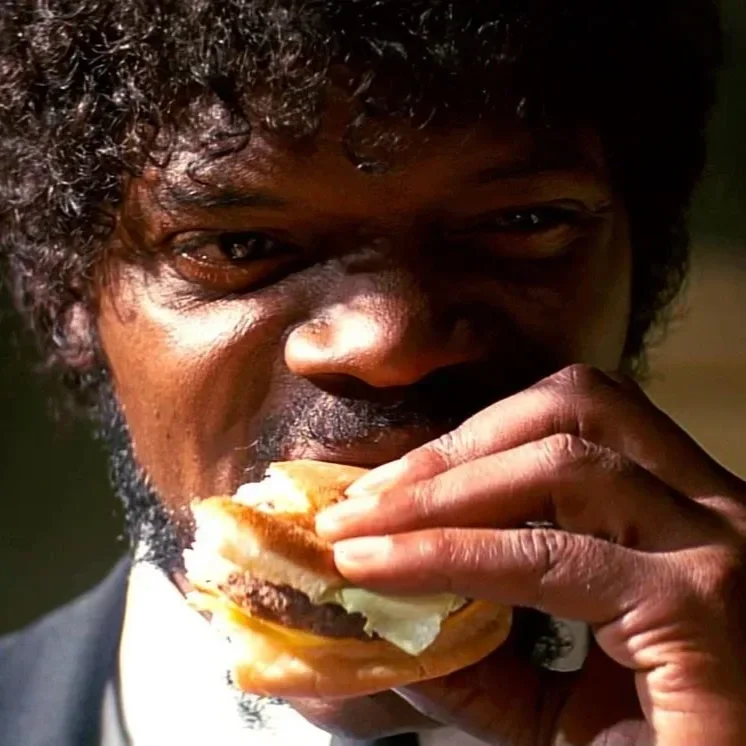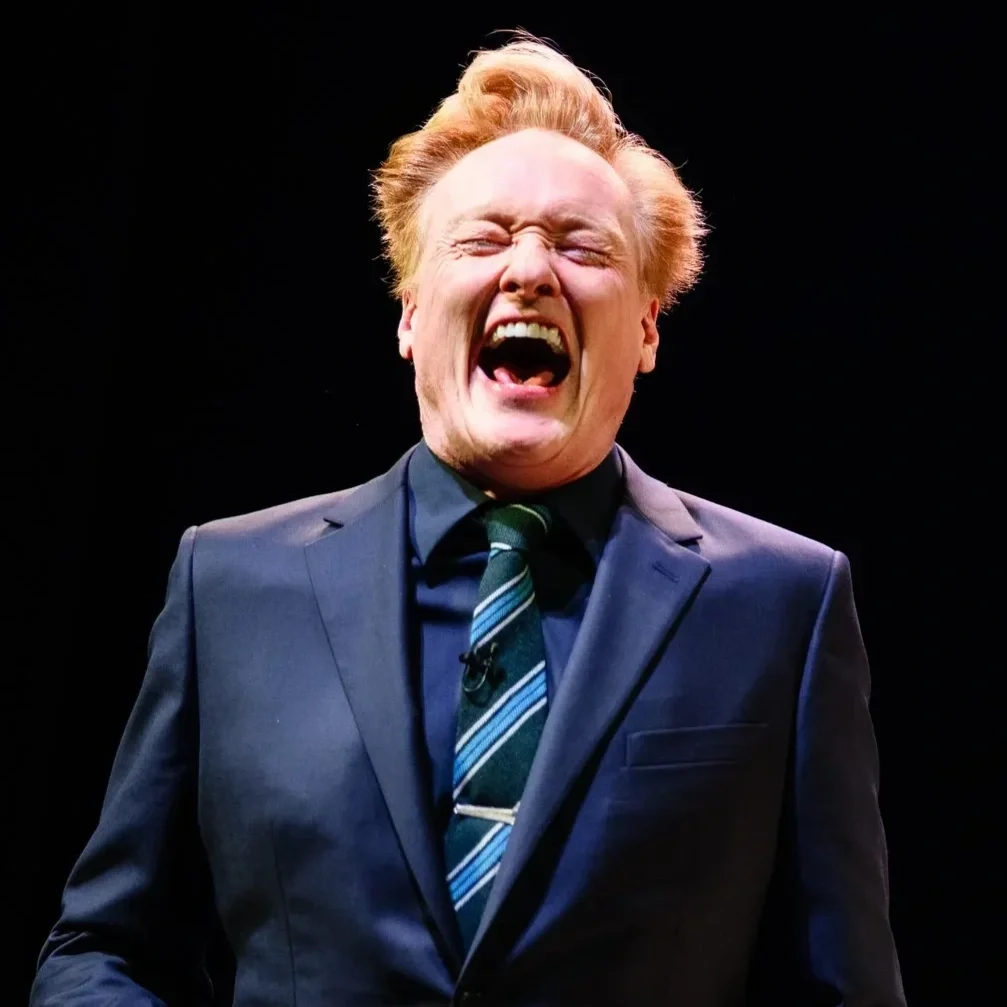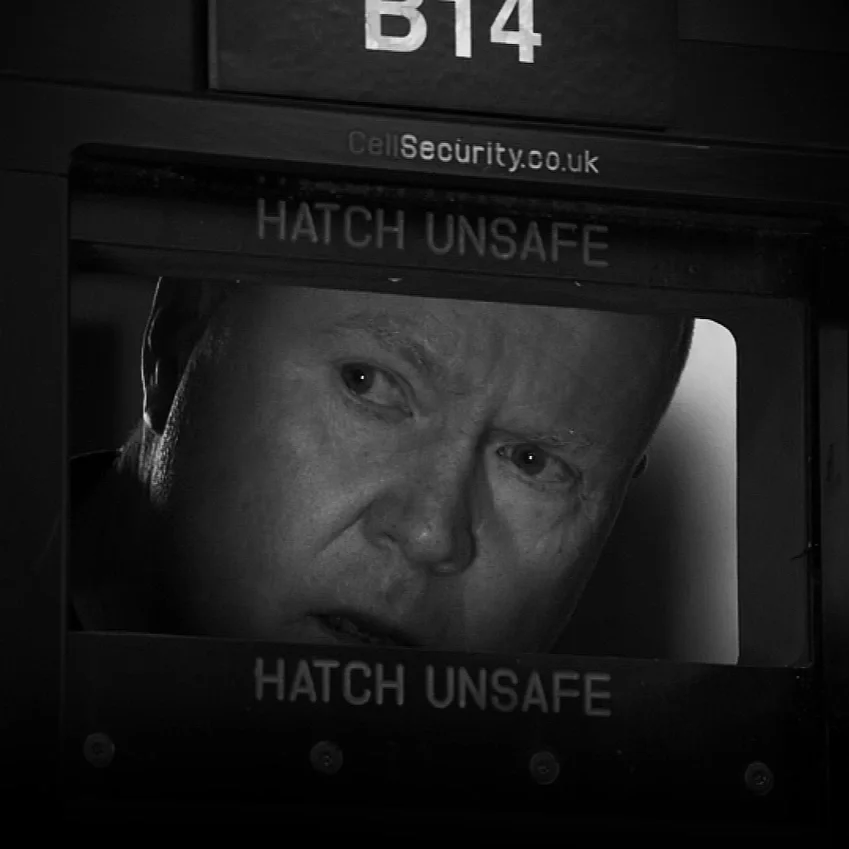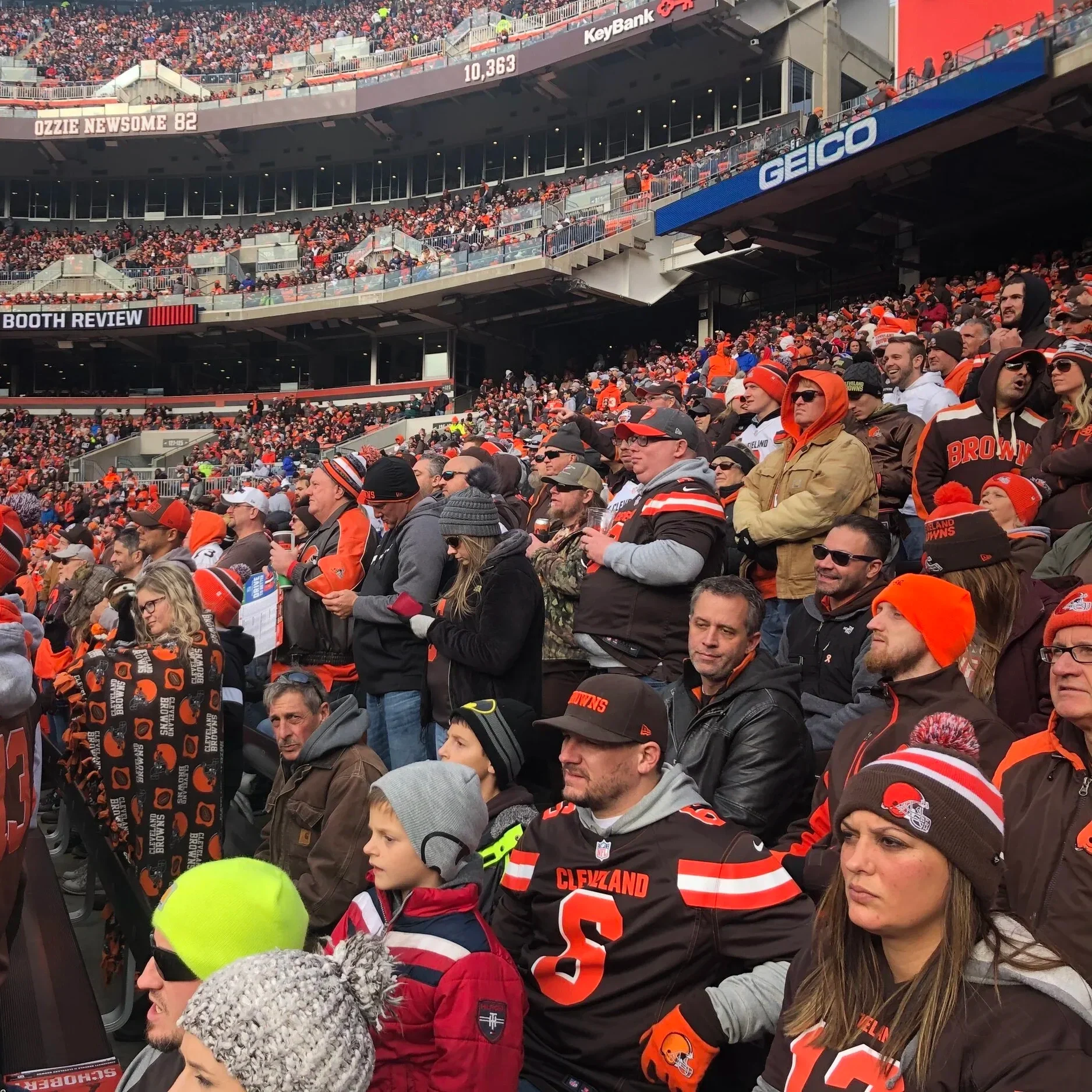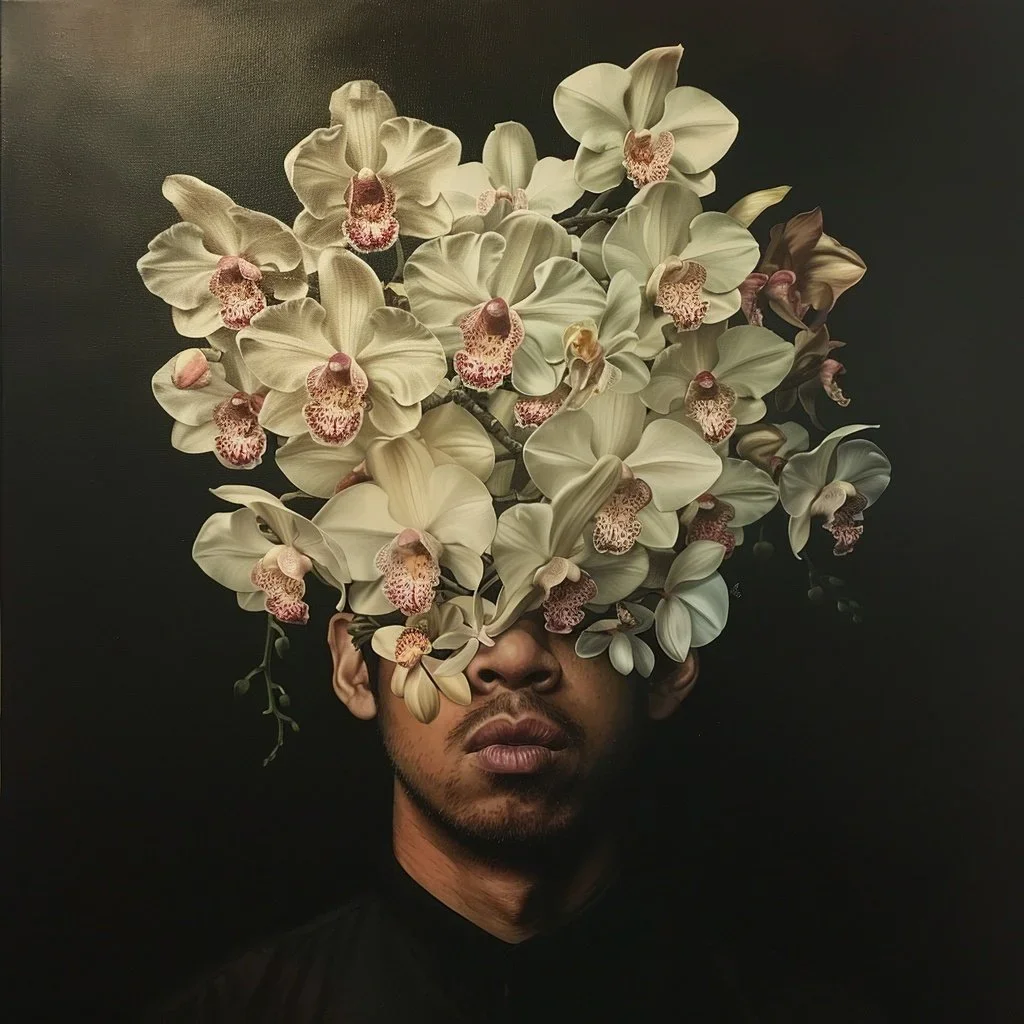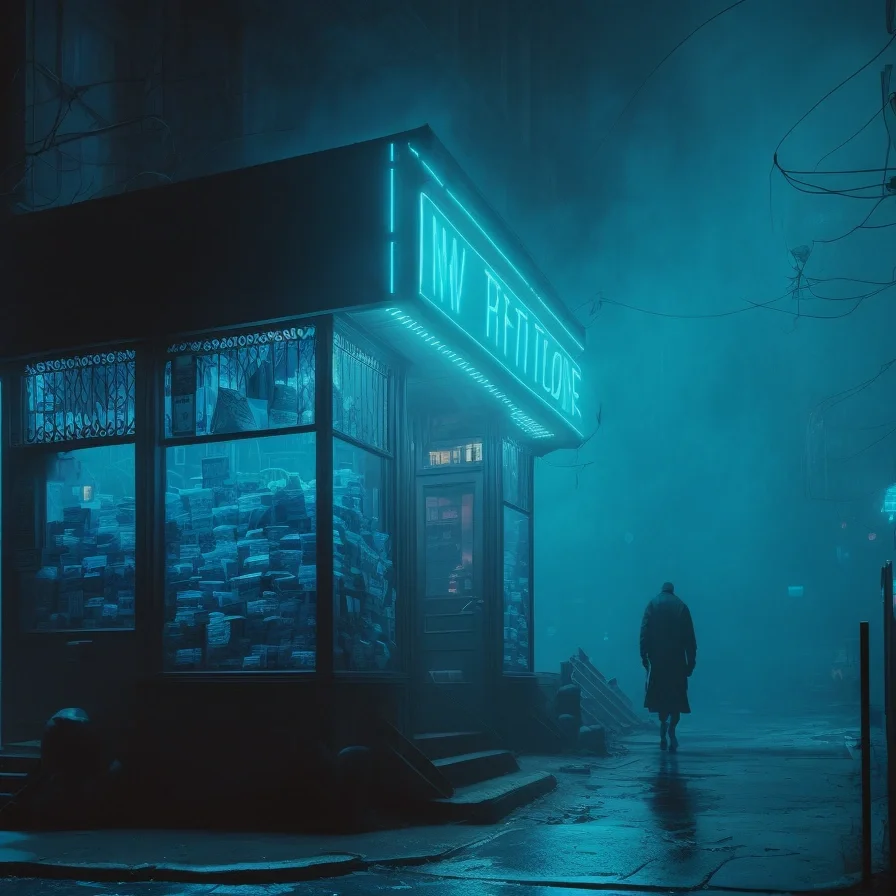The Ten Year Cycle
Programming Note: While I write literally all day at work - emails, slack messages, whiteboards and more, I haven’t actually sat down and truly written anything in many years. Encouraged by my wife, Mary, to start sharing some of the stories of my life, especially with our daughter, Emma, I’m going to take on the challenge of writing down as much as I can remember about the moments which have been important to me along the way.
Emma, I hope one day you’ll read and enjoy these as much as I’ve enjoyed remembering them.
Later this year I’ll turn 50. And the older I get, the more I keep thinking that my life has increasingly been organized into fairly neat, highly delineated ten year increments. That with consistency, something large and for the most part life changing has happened at ages 10, 20, 30 and 40. With my fiftieth birthday coming up in October, and with this realization strongly in mind, I’m curious as to what that might be, or if simply having become aware of it naturally defeats its efficacy. But I’ll take each decade in turn, and attempt to make some sense of it all.
Ten to Twenty
I don’t remember too much about turning ten back in 1983, but the little I do remember seems to have stuck. I spent it flying back from a month-long vacation to family in South Africa, where we had toured the big game parks, surfed in the Indian Ocean, and perhaps most tellingly, visited several battlefields from the Anglo-Zulu War. I have very little specific recollection of what must have been at the time little more than a barren set of dry African plains, but ever since there’s been something that’s stuck about that brief Victorian conflict, and especially the events at Rorke’s Drift and Isandlwana on the 22nd January 1879. Even now, forty years later, I recreationally read large, dry, dusty sourcebooks about the campaign, and simply inhale them when I do. If ever I get to have to pick a ‘specialized subject’ on a game show, this would be it. I can tell you a lot about the over-extension of the British supply line, the myths about the ammunition used, and the stark differences between the cinematic depictions and the actual events. But the point here is that a life-long love of history was born on that trip, and it’s something that’s stuck ever since. Also around that time, I was at a very rural, very tiny, but very communal school in Somerset, England, and for the most part I have fond nostalgic memories of my time there. Weirdly, for the most part I can only remember the summers around that time, perhaps that’s the warmth of my nostalgia.
Subsequently, my teens would, as you’d expect, be characterized by education. Firstly from ages 12 to 16 at the comprehensive school, which was more survived than attended, and then two years at college, and one year at art school. It was really only when I went to college in 1990 that I started to understand what made me… me. But importantly, I was surrounded by many more people who looked like me, talked like me, were into the same things as me, and wanted to do things together with me. It was a fantastic time for music, and the first time I heard The Pixies, New Order, The Smiths and The Stone Roses I felt as if the back of my head had been blown off. And life was literally never the same. I’m listening to that first Stone Roses album as I type this, and it still sounds as fresh as the first time I heard it through, listening to it in a cold upstairs guest bedroom on cassette at my grandparents’ house. I remember it like it was yesterday, really because in many different forms, I still live that same wonderful moment over and over again.
Twenty to Thirty
Turning twenty was a completely different thing. I turned twenty during my first week in London. I was fresh up from the countryside, didn’t know anyone, and was a bag of nerves and excitement for what was going to be the first ever member of the Shadbolt family to go to university. Turns out I was able to meet someone from my Fine Art course in the orientation line, who came to the pub with me, and we ended up becoming the best of friends for the rest of our lives. As I look back, I often think the universe has a heliotropic way of naturally guiding you towards the light, and arranging opportunity to be laid in front of you, and this was one of those moments. At art college back in Somerset I’d been cocky and arrogant. Confident in my rhetoric and already making frequent trips to visit galleries in London. I was living the life before I got the life, and the unspoken hierarchy of students from our class accepted to London schools as opposed to schools elsewhere in the country was very, very real. It was my first introduction to the snobbery of the city, and in my desire to simply get out of Somerset, jumped in with both feet, something I’m not proud of, but that doesn’t mean it didn’t happen. My cockiness arrived in London, fueled by a lifestyle of an untethered nineties art student and all that brought. I was out every night, really enjoying what I was doing at school, had made some great friends, and after a couple of bumps, had settled into a place I could call home. I often miss that crummy little bedsit apartment in the attic of an old crumbling house. I changed my degree concentration fairly early on, from Fine Art to Critical Fine Art Practice, which was essentially a 50/50 split between art history and (for me) the emerging field of digital photography. My friends fondly remember me being on a fine art course and never getting my hands dirty once.
But my twenties were also when I grew up, and really for the first time, started to experience challenge in life. Living alone in London wasn’t easy, and for as much as I loved it, at times I began to experience symptoms of anxiety and depression. But I also got to experience some phenomenal things. I lived in Milan on a scholarship. I did my postgraduate degree for two years in Holland, which was one of the most intense, physically destructive, but ultimately insanely rewarding experiences of my life. But again, something I survived rather than attended, and upon return to London, I vowed never to live like that ever again. During that time I’d moved from wanting to be a writer to becoming a digital designer. In many ways I went to the ‘computer room’ and never came back. I’d be first in and last out every day, for two years. And when I graduated and came back to London, ironically living next door to where I’d previously lived as a student, I had a craft and profession that enabled me to start applying for jobs. I loved video games, had made several of my own, and could work with type. I freelanced for a little bit, and then got a part-time gig at QVC as a designer in their nascent web team. Four overcaffeinated dudes sat around a light-locked table trying to figure out the web. As the team grew, we played hard, and we worked hard, and I’m still very proud of what I was able to do during my first job out of education. I dated and lost. I had my own place for the first time, my own income, and was for the first time, truly self-sufficient. I was doing a million things, but also beginning to settle, or at least I thought I was.
And then the phone rang with an offer to come and work in America. I thought about it for about twenty minutes before saying yes. My interview was on 9/10/2001, a day before one of the worst days imaginable and a month before I turned 28. I moved in the subsequent January, and I think I knew all along that I was never coming back. Again I had my own place in downtown Philadelphia, but began to be restless, especially professionally. I dated and lost again. But as I look back on my twenties, they were really where I grew up. Or had to. I started them as a nervous country kid fresh to the city, and ended them living and working in Philadelphia.
Thirty to Forty
But if I thought my twenties were where I had to grow up, they were merely prelude to my thirties, where the chicanery of navigating the real world, especially the world of work in New York came sharply into focus. But before that unfolded, there’s the distinct moment of my thirtieth birthday. An all-day affair, primarily held in the pub across from where I lived in downtown Philadelphia, my friends and I were wasted by about 10am. From there, depending on how you look at it, the day only got better, or it only got worse. We drank. We laughed. We ate garbage food. And it was glorious. It was one of the best days of my life. But if the universe was guiding anything that day, it would bring someone to the pub that night who would change my life again, forever. Deep into the day, but still early for those choosing to revel with us in the evening, a work friend had brought a date. As I embellish the story through the lens of nostalgia, or perhaps through the dull fog of my fifteenth pint of lager, the crowd parted, and there she was. The most beautiful girl I’d ever seen. I remember turning to my friend, who was struggling to sit down, let alone stand up, and I said “who is that?”. It was that amazing blend of alcohol, destiny, beauty and the bravado that comes with complete intoxication. But there she was. And of course, she was on the date with the wrong person. I don’t remember saying anything to Mary that night other than hello. But I remembered her the next morning, even through the crushing neural pain of the world’s biggest hangover.
I moved jobs, and in time, moved from Philly to New York, where I lived in Midtown Manhattan in a small studio apartment at the top of Hell’s Kitchen, and what felt like the top of the world. I was able to walk to work for the first time ever. The work was intense, the people more so, and it soon became apparent that I was in the middle of a nightmare, a position I’d willingly chosen to enter. In my appetite for leaving QVC I’d gone from frying pan to fire. It was really my first experience of a toxic work environment, the destructive nature of poor leadership, and all the anxiety which comes with that. I’d been able to make some good friends at work, but they were work friends. I was still on my own, and still didn’t really have anyone outside of work to either vent to or do things with, other than the increasingly less frequent calls from folks in England. I was able to extract myself in a way which neither burned bridges nor left any ill-will, but I was glad to be gone. I had found a new role, and inadvertently, unexpectedly joined a team with someone who would become the best boss I’d ever wish to have.
But as the universe guided me through my early thirties, it also never forgot that girl from the pub in Philadelphia, and it brought our paths together for the second time. I asked her out. We began dating. We got serious and moved in together. We traveled and enjoyed all that the city could offer. I proposed on the beach in Cape May and she said yes. We bought a home together, which is still our home today, and got married on a cold snowy Morristown day in February 2007. A few years later we’d have our daughter, Emma, who is the light of our lives.
When I look back on my thirties, it’s primarily a decade characterized by a single thing, work. Work had been the constant which had brought me to America in my late twenties, and had facilitated my move to New York in my early thirties. And in that space between 2003 and 2013 the web does a lot of growing up too. During that time there’s the rise of search, mobile, video, social, and just about as much transformative change as one can imagine. The web is a completely different place ten years later, and I was in the middle of all of it during my time at Corcoran. I still look back proudly on the things I was able to build there, and it undoubtedly enabled me to travel, exponentially grow my own network, and by the time early 2013 rolls around, everything is coming to fruition and operating in high gear. That is, except, my health. Years of commuting and the long days and nights which come with it, burning the candle at both ends in driving enormous social growth for Corcoran, and seizing every opportunity available were starting to have a cost. During 2012 I was increasingly starting to complain of fatigue, and the downtimes of weekends and evenings just seemed to feel shorter and shorter. Every evening felt like the grim dread of a Sunday night. In early 2013 we took a family vacation to DisneyWorld, where things came to a head and I was in enormous pain, often unable to join in with all the activities, and I was just miserable. I’ve written extensively elsewhere about what happened next, but needless to say, the universe intervened again, and put me in a situation where I was forced to stop or die.
It’s a scary thing to confront your own invincibility like that, but the years of partying, traveling, working hard and playing harder, eating whatever I wanted and staying up all hours of the night finally caught up with me, and work was the thing which had to give. I took 4 months off, recovered, and became a cancer survivor. Corcoran could not have been more supportive, empathic and kind, and even now it’s the strong memory of the masterclass in kindness they put on which I’ll never forget. I slowly started to go back to work in the late summer of 2013, 60 pounds lighter and with a renewed perspective on what’s important in life. Simply put, I just began to care a whole lot less about work and my relationship to it.
On my fortieth birthday, we did what we often do, spending the weekend in our beloved Philly. And while having brunch at one of our favorite restaurants, a LinkedIn message arrives. It’s from The New York Times. We love your work and were wondering if you’d like to chat with us about an opportunity. If 2013 had taught me anything, it was that life is literally too short, and that spending it with any regrets is a fool’s errand. I wrote them back on the Monday morning and we began to talk. Eighteen interviews later, I got the job and was slated to start in the January. But there was a catch. I had to tell my current boss about it, and let her know that I’d be moving on. It was one of the hardest conversations I’ve ever had to have. How do you tell the person who has shown you such kindness, such generosity, and such commitment that you’ll be leaving them? I had really wanted to have that conversation in person, but it just didn’t work out and we ended up chatting over the phone. I told her, and of course, the masterclass in kindness continued. She was so excited for me, and told me how proud she was of the work we’d done together and how I was going to go on to even greater things at The Times. I cried at her kindness.
Forty to Fifty
Just like my thirties had begun with meeting the girl I’d marry and moving to New York, so my forties began with a story of survival and what I thought was going to be my final job change. I had always, and still do of course, love The Times, and the opportunity to work there was literally a dream come true. I was convinced it was the place I was going to retire from. I mean, once you get to work there, for the most prestigious news institution in the world, why on earth would you ever leave? And for the most part, my experience of working there was amazing. Being there through the 2016 election cycle, witnessing seismic digital transformation and getting to be a small part of that work, and getting to spend time with some genuinely incredible people, was of course, one of the most amazing professional experiences of my life. I am well aware of how lucky I was to have that opportunity. I am grateful for it all. But such opportunity, at least for me, came again with a cost. The Times is not an easy place to work. It’s large, often dysfunctional, highly matrixed, and at the time, was lurching between propping up the legacy ad business and transitioning to the new digital reality of subscriptions. Plus, I was still commuting three hours a day back and forth from home, which was getting increasingly more difficult as Emma got older. I got to do some amazing things with the doors The Times opened for me. I traveled professionally to Vancouver, Toronto, Mexico City, Barcelona, and dozens of cities domestically. I had the best team I’m ever likely to have in any job, and even with the distance and hindsight of time, the four of us still speak on a daily basis. Our lives are all in different places now, having all moved on from The Times, but now we’re at NBC News, Google, LinkedIn and Apple. Not a bad outcome for our little team that shipped big things. A couple of us are parents, all of us are now married and settled down, and most importantly, all of us are happy.
In 2017, where I was now 43, I began to get restless again, and it wasn’t a comfortable feeling at all. Had I made a mistake in coming to The Times? How could something so certain have not worked out? My team was increasingly being pulled in different directions, budgets and interest in our work were drying up, I was on my sixth boss and eighth desk in three years, and I was just getting more and more apathetic about life there, which was a crushing feeling. I began to withdraw from meetings, spend more days ‘working from home’, and while I wasn’t applying to anything, was mentally pretty checked out and figuring out what might be next. A call came in with an opportunity to become the Chief Product Officer for a small, independent real estate news and events business, a role which most importantly and attractively, would allow me to work from home. At the time in 2017, remote organizations were very much in the minority. Now of course, everyone does it. But it meant no more commutes, spending more time with the family, and what I’d hoped was simply more ‘me’ time. I intended to recover from close to fifteen years of commuting as soon as possible. I left The Times on a high note, with one of the best parties I’ve ever been to. Our little team worked hard and played harder, and I have enormously fond memories of my time there, despite all its twists and turns, and I will always count myself amongst the proud Times alumni.
I only worked at that next job for eighteen months. It wasn’t for me, and I didn’t just need to be working from home, I needed a genuine, actual break. My anxiety was in overdrive and I needed to spend some time getting healthy. I just wish I had been able to know and understand this earlier. Knowing when to hold ‘em and when to fold ‘em was one of the most valuable lessons I learned during my forties, and this was one of those times. I did something I’d never done before, and took time off work for three months. It was a scary thing to do, but in hindsight, one of the best things I’ve ever done. I worried about money. I worried about not being able to find another gig and support my family. I worried what the narrative of what an absence of employment might look like to future employers. But all it took was for Mary to say “you know we’ll be OK, right?” to make all that anxiety melt away. The moral of the story here is of course, that your wife is always right.
As it turns out, I didn’t need to worry about any of that. The first Monday morning that was genuinely ‘mine’, after twenty years of solid work, was one of the most disorienting moments of my life, and I imagine this is what it feels like for the recently retired. That feeling of ‘ok, so what now?’ I read the books I’d always wanted to read. I watched all the shows I’d missed. I caught up on all the jobs around the house I’d put off for years. I built this website and collated all my work into a single place. I wrote about my experiences. And I reflected upon what I knew, what I really wanted to do in life, and what might come next. And I didn’t have to look far. I’d loved working in news, and the Times alumni network is incredibly strong. It’s an old cliche that everyone who works there goes on to much bigger and better things, but I’d never really bought into that, until it happened to me. I reached out to an old colleague, who was now heading up product at CNBC, and we got chatting. Fast forward a couple of months and he’s now my boss, and to this day he’s giving my old boss at Corcoran a real run for their money on being the best boss I’ve ever had. I’d found a place which valued and embraced kindness and empathy, championed its people, did enormous, impactful things which touch millions of users each day, and most importantly, they took the work seriously but they didn’t take themselves too seriously. I was back commuting, but this time it was on my own terms, freed of the soul crushing New Jersey Transit, swapping it for the Indy 500 of New Jersey’s Route 80, a pothole-ridden highway that’s claimed victory against my mini several times over the years. As I approach fifty, I’m now the Head of Product not for CNBC, but for the core experiences for the entire NBC News Group across six different broadcast and digital brands. I’m exceptionally proud and lucky to work there.
But as I look back on my forties, from that brunch in Philadelphia to my current remote working setup post-pandemic here at home, it’s hard not to think about a few hard lessons learned. Perhaps the main one is the power of simply shutting up. My mouth has gotten me into trouble several times over the years, but of late I’ve truly recognized and come to peace with the power of saying nothing. I’ve also come to a much healthier place between personal work and the real work of employment. This has always been a tough balance for me. In my twenties working for QVC, I was creatively unfulfilled and began to branch out with extracurricular projects of my own. In my thirties as social media exploded, I was able to seize that momentum and grow my own brand, even if ultimately I stepped away from it all after a while. And in my forties, especially fueled by the pandemic, I feel more creatively fulfilled with extracurricular projects than ever before in my life. I’ve gone back to school and am an undergraduate at The University of Pennsylvania, majoring in ancient religious studies and globalization. I have embraced the incredible power of artificial intelligence tools for creative ends, and am beginning to build and grow something new, which has already proven moderately successful but incredibly rewarding after only six months of working on it all. Emma’s nearly 13 and growing into the funny, smart, happy kid we always wanted her to be. Raising a daughter hasn’t been easy for me and Mary, but the rewards are some of the best in life, and we regret nothing. Mary and I still listen to the same music and dress the same way we did when we were in our twenties. Even last night as I type this, we went to see The Charlatans and Ride, two bands we first saw all the way back in 1990, a shocking 33 years ago. But none of it makes me feel old. I feel as mentally fit as ever, and enjoy all the things I’ve always enjoyed. I still collect music and Star Wars stuff, still play video games, still read comic books and still eat junk food, even though I know I should moderate it more. I’m settled, reflective, and proud of the journey so far.
But as my forties come to a close, and knowing what happened at the distinct moments of ages 20, 30 and 40, all of them being instrumental in large life changes for me, 20 going to university, 30 meeting Mary, and 40 joining The Times, it’s been an interesting exercise to think about what 50 might hold. I don’t pretend to have any kind of crystal ball, but I do believe there’s a pattern of lived experience here whereby on these large milestones, something transformative happens. I don’t know what will happen next, but here’s a few things I do know.
Fifty and Beyond
Over the next ten years, I’ll begin to approach retirement age. In 2033 I will turn 60, and the clock will begin to wind down on my professional life. With ten years remaining, I want my impact to be long lasting, not just for the means and ends of a business, but for those around me. Emma will turn 23 in 2033, which in itself is a terrifying thought. I am hopeful she’ll go to college, see the world, and take every opportunity in front of her. But most of all I hope she’s happy. If you have that, that’s really all you need. In the next couple of years, I will graduate from Penn, likely in 2025. What happens after that I don’t know, but I don’t feel as if my academic journey should end there. I am considering a masters degree in ancient literary traditions at the moment, which is getting me excited. I suspect much of life will remain consistent, as it always has done. I expect I’ll still be listening to the stuff I always listened to. Be into the same kinds of shows and movies I’ve always been into, and play the same kinds of video games I’ve always played. Much of my forties has been spent playing Destiny, and I suspect that will continue deep into my fifties, probably until they discontinue it or forcibly remove my ability to play it. Being able to make things with artificial intelligence, at least right now, doesn’t feel as if it’s going away anytime soon, and in many ways feels as if the next frontier of the web is opening up. I hope I can continue to have some fun with that. Might turning fifty come with changes more dramatic than these? A job change? Another life change of some sort? Who knows, and much of what I’ve described here is simply a continuation of what I’m enjoying right now. I hope I can see much more of the world than I have done so far. I’d love to go to Japan, Australia, India and Egypt. As a person I hope my fifties brings me more peace and silence, and my journey back to Catholicism in recent years has been instrumental in making a lot of that a reality. I really should write down what that journey has been all about some day.
So, ten to fifty. Forty years of an incredible ride, and my advice at fifty to the Matt of ten would be exactly what ended up happening. Work hard, be kind, take every opportunity, and amazing things will happen. I don’t know what the next ten years will hold, but I’m hopeful to be able to look back on all of this one day, and laugh at how wrong I was about it all. Who knows what the future holds, but that’s all part of the fun of life, right?



